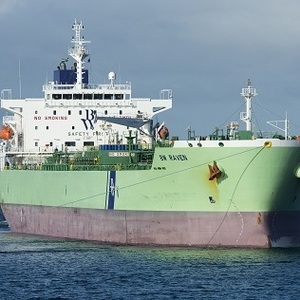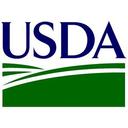US biodiesel fair trade coalition files new claim in imports case

Photo: Christer Ivarsson
July 10, 2017
BY The National Biodiesel Board
The National Biodiesel Board Fair Trade Coalition has filed a new allegation with the U.S. Department of Commerce claiming that critical circumstances exist with respect to imports of biodiesel from Argentina. The “critical circumstances” provision in antidumping and countervailing duties laws allows for the imposition of duties on imports that enter the U.S. prior to preliminary determinations of subsidization and dumping.
Critical circumstances protections can provide relief in the form of retroactive duties from the effects of a surge in shipments. These protections exist to deter importers from stockpiling and circumventing the antidumping and countervailing duty laws by making massive shipments immediately after the filing of a petition and before relief is typically imposed.
New data have come to the NBB Fair Trade Coalition’s attention, which provides a reasonable basis to believe or suspect that critical circumstances exist with respect to dumped and subsidized imports of biodiesel from Argentina. The coalition found that imports of biodiesel from Argentina jumped 144.5 percent since the filing of the antidumping and countervailing duty petitions, as compared to the period prior to the filings.
“Our industry deserves relief,” said Anne Steckel, vice president of federal affairs at NBB. “The law provides a remedy for U.S. industries harmed by illegal trade practices of this nature, and so we are taking the appropriate steps to ensure these unlawful actions are addressed. Our producers should not continue to be pushed aside by increased volumes of subsidized and dumped imports.”
Paul Soanes, CEO and president of Renewable Biofuels (RBF), said, “When we see biodiesel from Argentina selling at a discount to the market price of soy oil—the main input into biodiesel—we know we are facing dumped pricing. The United States is a key market for these exporters, and without a remedy, these unfairly traded imports are likely to continue unabated. That is a further threat to our business.”
To determine critical circumstances, the Commerce Department must find that there are “massive” imports over a relatively short period of time, and that other statutory criteria are met, including whether the imports benefit from illegal subsidies. The NBB Fair Trade Coalition’s petition alleges that each condition has been met.
Earlier this year, the NBB Fair Trade Coalition filed petitions with the commerce department and the U.S. International Trade Commission, which allege that significant increases in subsidized and dumped biodiesel imports from Argentina and Indonesia have injured U.S. producers, including by taking market share away from U.S. manufacturers and suffocating U.S. investment activity.
The Argentinian government employs several tactics that make it hard to compete, including subsidies to Argentinian biodiesel producers, declining export taxes on their biodiesel, and various tax incentives and exemptions for biodiesel producers. By taking advantage of these various subsidies, Argentinian producers have become dominant exporters and taken an increasingly greater share of the U.S. market. This has caused U.S. producers to pull back on investments to expand production capacity in what continues to be a growing market.
“We have halted several plant modification projects as a result of reduced working capital, even for modest projects,” said Robert Morton, co-founder of Newport Biodiesel in Rhode Island. Stories like this from biodiesel producers nationwide provided the impetus for filing the petitions.
Advertisement
Advertisement
On May 5, the ITC made a unanimous preliminary decision that biodiesel imports from Argentina and Indonesia injured U.S. producers. The commerce department will announce its preliminary determinations regarding the estimated rates of subsidization and dumping on or about Aug. 22 and Oct. 20, respectively.
Advertisement
Advertisement
Related Stories
Montana Renewables LLC has delivered its first shipment of 7,000 gallons of SAF to Dearborn, Michigan's Buckeye Pipeline facility. From there, the fuel will be transported to the Detroit Metropolitan Airport via pipeline for use by Delta Air Lines.
NYC took a monumental step towards clean air and a sustainable future on Jan. 11 with the grand opening of the city's first retail fuel station dispensing renewable diesel. The project is a collaboration between Sprague and Sonomax.
The USDA on Jan. 11 awarded $19 million under the Higher Blend Infrastructure Incentive Program. The grants will support projects in 22 states to expand the availability of higher ethanol and biodiesel blends.
Jet Aviation partners with World Fuel Services to offer SAF in Bozeman, Montana, and Scottsdale, Arizona
Jet Aviation announced on Dec. 22 that it has signed an agreement with World Fuel Services to secure and offer sustainable aviation fuel (SAF) on-site at its FBOs in Bozeman, Montana, and Scottsdale, Arizona, effective immediately.
Neste has partnered with Coleman Oil Company, a leading provider of fuels, biofuels, lubricants, and related products, to enable cities and businesses to have easier access to Neste MY Renewable Diesel in the state of Washington in the U.S.
Upcoming Events










